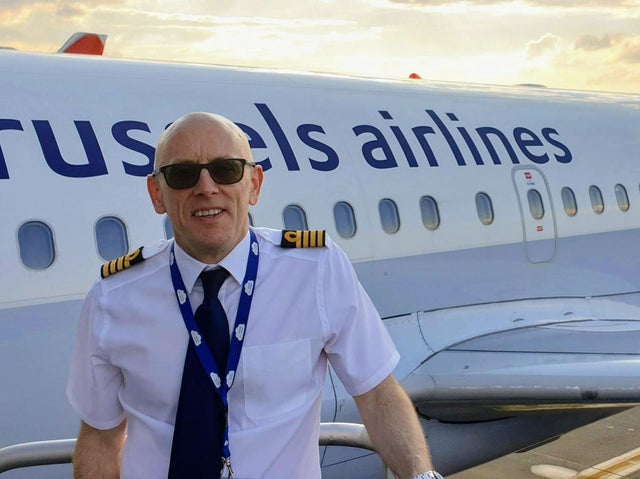The International Air Transport Association (IATA) announced slowing global passenger demand growth for July this year. Total revenue passenger kilometres (RPKs) rose 3.6%, compared to the same month in 2018. This was down from 5.1% annual growth recorded in June. All regions posted traffic increases. Monthly capacity (available seat kilometres or ASKs) increased by 3.2% and load factor rose 0.3 percentage point to 85.7%, which is a new high for any month.
“July’s performance marked a soft start to the peak passenger demand season. Tariffs, trade wars, and uncertainty over Brexit are contributing to a weaker demand environment than we saw in 2018. At the same time the trend of moderate capacity increases is helping to achieve record load factors,” said Alexandre de Juniac, IATA’s Director General and CEO.
| July 2019 (% year-on-year) | World share1 | RPK | ASK | PLF (%-pt)2 | PLF (level)3 |
| Total Market | 100.0% | 3.6% | 3.2% | 0.3% | 85.7% |
| Africa | 2.1% | 4.0% | 5.8% | -1.3% | 73.5% |
| Asia Pacific | 34.5% | 5.2% | 5.1% | 0.0% | 83.1% |
| Europe | 26.8% | 3.3% | 3.1% | 0.2% | 89.0% |
| Latin America | 5.1% | 2.8% | 1.8% | 0.8% | 85.3% |
| Middle East | 9.2% | 1.3% | 0.8% | 0.4% | 81.2% |
| North America | 22.3% | 2.7% | 1.6% | 0.9% | 88.8% |
1-% of Industry RPKs in 2018 2-Year-on-year change in load factor 3-Load factor level
International Passenger Markets
July international passenger demand rose 2.7% compared to July 2018, which was a deceleration compared to the 5.3% growth recorded in June. Capacity climbed 2.4%, and load factor edged upward 0.2 percentage point to 85.3%. All regions reported growth, led by airlines in Latin America.
Asia-Pacific airlines’ July traffic rose 2.7% over the year-ago period, a slowdown compared to June growth of 3.9% and their weakest performance since early 2013. Capacity increased 2.4% and load factor rose 0.2 percentage point to 82.6%. US-China and Japan-South Korea trade tensions, as well as political tensions in Hong Kong, all have weighed on business confidence.
European carriers registered a modest 3.3% annual growth in July, down from a 5.6% year-over-year increase in June. This is the slowest rate of growth since mid-2016. Continuing uncertainty over Brexit and slowing German exports and manufacturing activity contributed to a weakening in business and consumer confidence. Capacity rose 3.2%, and load factor climbed 0.1 percentage point to 89.0%, highest among the regions.
Middle East carriers had a 1.6% increase in demand for July, well down on the 8.3% growth recorded for June, after the end of Ramadan. Weakness in global trade, volatile oil prices and heightened geopolitical tensions have been negative factors for the region. July capacity climbed 1.0% compared to a year ago and load factor rose 0.4 percentage point to 81.3%.
North American airlines’ traffic climbed 1.5% compared to July a year ago. This was down from 3.5% growth in June, reflecting the slowdown in the US and Canadian economies and the trade disputes. July capacity rose 0.7% with the result that load factor climbed 0.7 percentage point to 87.9%, second highest among the regions.
Latin American airlines experienced a 4.1% rise in traffic in July, which was the strongest growth among the regions but a decline from 5.8% year-over-year growth in June. It occurred amid continued disruption following the demise of Avianca Brasil and more challenging business conditions in some key regional economies. Capacity rose 2.7% and load factor climbed 1.1 percentage points to 85.6%.
African airlines’ July traffic rose 3.6%, a significant decline from 9.8% growth recorded in June, as weakening business confidence in South Africa offset solid economic conditions elsewhere on the continent. Capacity rose 6.1%, and load factor slipped 1.7 percentage points to 72.9%.
Domestic Passenger Markets
Domestic travel demand outperformed international growth in July, as RPKs rose 5.2% in markets tracked by IATA, up from 4.7% growth in June. Domestic capacity climbed 4.7%, and load factor rose 0.4 percentage point to 86.5%.
| july 2019 (% year-on-year) | World share1 | RPK | ASK | PLF (%-pt)2 | PLF (level)3 |
| Domestic | 36.1% | 5.2% | 4.7% | 0.4% | 86.5% |
| Dom. Australia | 0.9% | -0.9% | 0.1% | -0.8% | 82.1% |
| Dom. Brazil | 1.1% | -6.1% | -6.9% | 0.7% | 84.7% |
| Dom. China P.R. | 9.5% | 11.7% | 12.3% | -0.4% | 84.9% |
| Dom. India | 1.6% | 8.9% | 7.1% | 1.4% | 88.3% |
| Dom. Japan | 1.1% | 4.7% | 5.8% | -0.8% | 71.7% |
| Dom. Russian Fed. | 1.5% | 6.8% | 6.3% | 0.5% | 92.2% |
| Dom. US | 14.0% | 3.8% | 2.6% | 1.1% | 89.4% |
1-% of Industry RPKs in 2018 2-Year-on-year change in load factor 3-Load factor level
China’s domestic traffic rose 11.7% in July—an acceleration over the 8.9% growth recorded in June and the strongest domestic performance. Growth is benefitting from lower fares and more connections.
Japan’s domestic traffic climbed 4.7% in July, up from 2.6% in June. Business confidence and economic growth are relatively positive at the moment.
The Bottom Line
Over the peak northern summer period, millions of people took to the skies to reunite with families, to explore the world or to simply enjoy well-deserved vacations. The aviation industry is working hard to ensure that the environmental costs of all travel are minimized.
“The carbon footprint of the average air journey this year is half what it would have been in 1990. From 2020 overall net emissions will be capped. And realizing the full potential of sustainable aviation fuels will play a major role in our 2050 target to cut overall net emissions to half 2005 levels. Unfortunately, with a host of environmental taxes planned or under consideration in Europe, it seems that governments are more interested in taxing aviation than partnering with industry to make it sustainable,” said de Juniac.
About Guide2Uganda
Guide2Uganda (www.guide2uganda.ug) is the most comprehensive source of information about Uganda that exists on the web, with more content on Uganda and surrounding towns, attractions, museums and galleries than any other online guide that currently exists for Uganda as well as being a dynamic news and comprehensive events driven site with content being added daily.
According to WeFollow & Peer Index (whom both measure online influence) we are among the most influential online media organizations in Uganda. We were also awarded for ‘’Best Destination Website in Uganda’’ by Jumia Travel Uganda in the 2017-2018 Africa Travel Awards. If you are planning a visit to Uganda you can always reach us on; info@guide2uganda.ug




